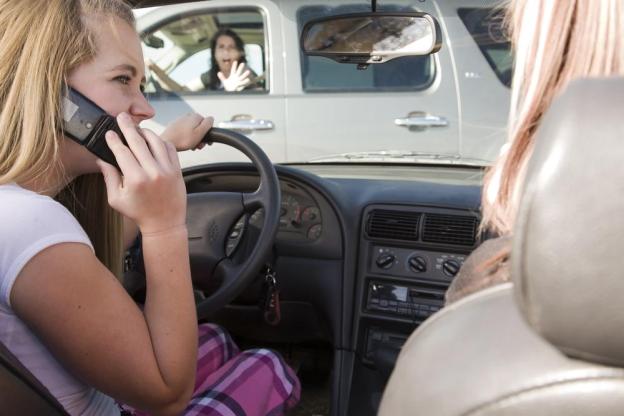 Few people will argue that texting while driving is OK, as it requires the driver to remove their gaze from the road ahead to the screen of their smartphone, a foolish action which could result in the vehicle acquainting itself in a most horrible fashion with the back end of another vehicle, a human being, or, in cases where the eyes are off the road for a really long time, a house.
Few people will argue that texting while driving is OK, as it requires the driver to remove their gaze from the road ahead to the screen of their smartphone, a foolish action which could result in the vehicle acquainting itself in a most horrible fashion with the back end of another vehicle, a human being, or, in cases where the eyes are off the road for a really long time, a house.
Some people, on the other hand, will say it’s fine to talk on the phone hands-free while behind the wheel, as the driver can still see what’s going on in front and, with two hands still on the wheel, can react quickly and efficiently to any sudden events.
However, a team of researchers at the Anna University of Technology in Tamilnadu, India say that even conversations using hands-free set-ups can impair driving ability. “Dialing and holding a phone while steering can be an immediate physical hazard, but the actual conversations also distract a driver’s attention,” team leader Abdul Shabeer said, explaining that braking reaction becomes slower when using a cell phone while driving, as does the time it takes to respond to traffic signals. Poorer lane discipline is another factor.
As a result, Shabeer and his team have been developing a system that can detect whether a driver is using their handset when the vehicle is moving, and if so, block the signal thereby rendering the device inoperable.
To ensure that passengers in the car can continue using their mobile devices, a low-range mobile jammer is used.
The system, which utilizes radio frequency identification (RFID) technology, could also send a signal to nearby traffic cops to let them know a driver is attempting to use their phone.
While we can’t imagine a car manufacturer incorporating technology in its vehicles that might snitch on its driver to the cops, the inclusion of a signal jammer of sorts seems more of a possibility, especially if it was part of an agreed, coordinated move between automobile makers.
Anyway, all these laws and tech systems designed to restrict in-car phone use will apparently soon be obsolete, as we’re all going to be whizzing around in driverless cars pre-programmed to take us to our destination, right?
[Image: Poulsons Photography / Shutterstock] [Inderscience via Science Daily]


